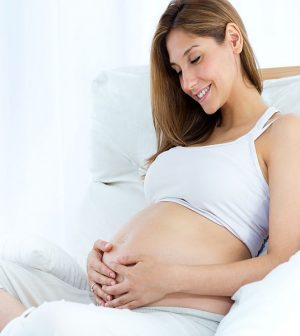- Recognizing the Signs of Hypothyroidism
- 10 Strategies to Overcome Insomnia
- Could Artificial Sweeteners Be Aging the Brain Faster?
- Techniques for Soothing Your Nervous System
- Does the Water in Your House Smell Funny? Here’s Why
- Can a Daily Dose of Apple Cider Vinegar Actually Aid Weight Loss?
- 6 Health Beverages That Can Actually Spike Your Blood Sugar
- Treatment Options for Social Anxiety Disorder
- Understanding the Connection Between Anxiety and Depression
- How Daily Prunes Can Influence Cholesterol and Inflammation
MS Doesn’t Put Women at Higher Risk During Pregnancy

In a finding that should reassure women with multiple sclerosis (MS) who want to have a baby, new research suggests the disease doesn’t raise the risk of pregnancy complications.
“Women with multiple sclerosis may be understandably concerned about the risks of pregnancy,” said study author Dr. Melinda Magyari, from the University of Copenhagen in Denmark.
“While previous research has shown there is no higher risk of birth defects for babies born to women with MS, there are still a lot of unknowns around pregnancy and MS,” Magyari said. “We wanted to find out if women with MS are at risk for a variety of pregnancy complications. We found overall their pregnancies were just as healthy as those of the moms without MS.”
In the study, researchers compared almost 3,000 pregnant women with MS to nearly 57,000 pregnant women without the autoimmune disease. All of the women gave birth between 1997 and 2016.
There was no difference between the two groups in the risk of several pregnancy complications: preeclampsia, gestational diabetes, placenta complications, emergency cesarean section, instrumental delivery, stillbirth, preterm birth, congenital malformations, or low Apgar score.
An Apgar score is a measure of a newborn’s health — including heart rate, reflexes and muscle tone — conducted immediately after birth.
The study did find that rates of elective cesarean section were higher among women with MS (14%) than among those without MS (8%). After adjusting for other factors — such as a prior C-section or mother’s age — the researchers concluded that women with MS were 89% more likely to have an elective C-section.
Other findings were that women with MS were 15% more likely to have an induced delivery than women without MS, and that women with MS were 29% more likely to have babies that were small for their gestational age (3.4% vs. 2.8%). The study was published in the Feb. 3 online issue of the journal Neurology Clinical Practice.
“We think the reason more women with MS have babies by elective C-section or induced delivery may have to do with MS-related symptoms such as muscle weakness, spasticity or fatigue that might affect the birth,” Magyari said in a journal news release. “Any of these could make a mom more tired and lead to delivery complications that could prompt the clinician and woman to take extra precautions.”
More information
The National Multiple Sclerosis Society has more on MS and pregnancy.
SOURCE: Neurology Clinical Practice, news release, Feb. 3, 2021
Source: HealthDay
Copyright © 2026 HealthDay. All rights reserved.










